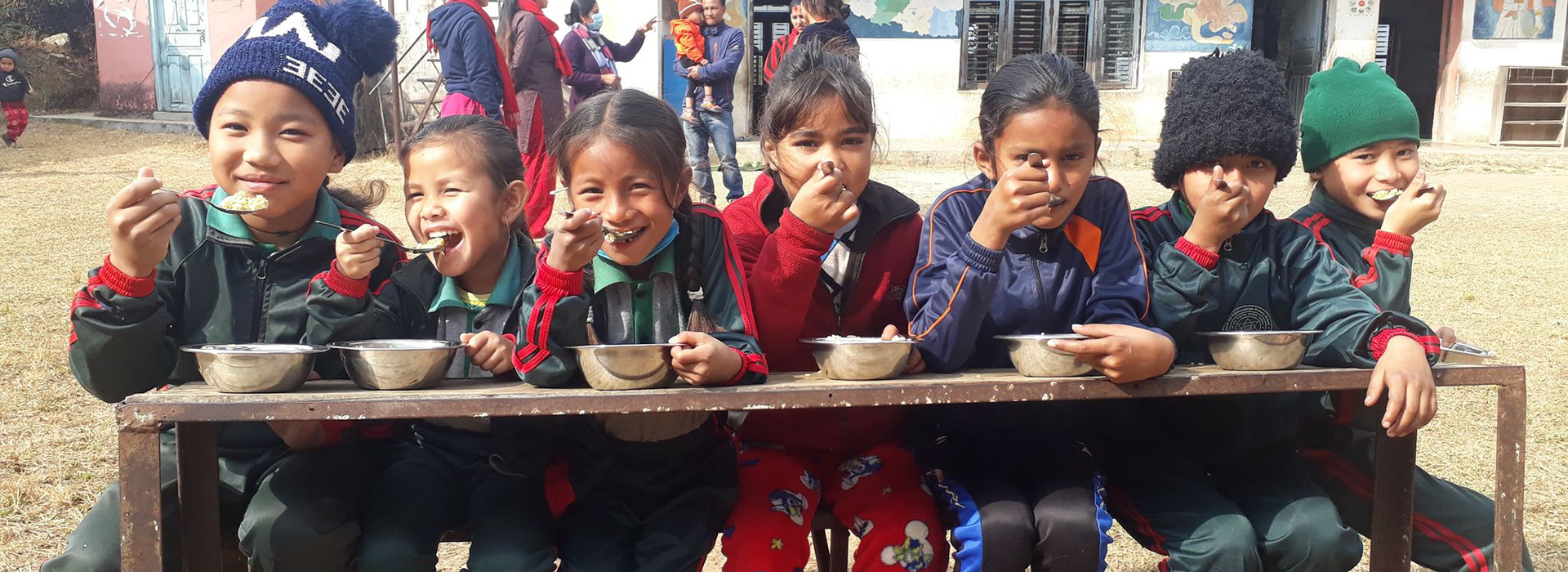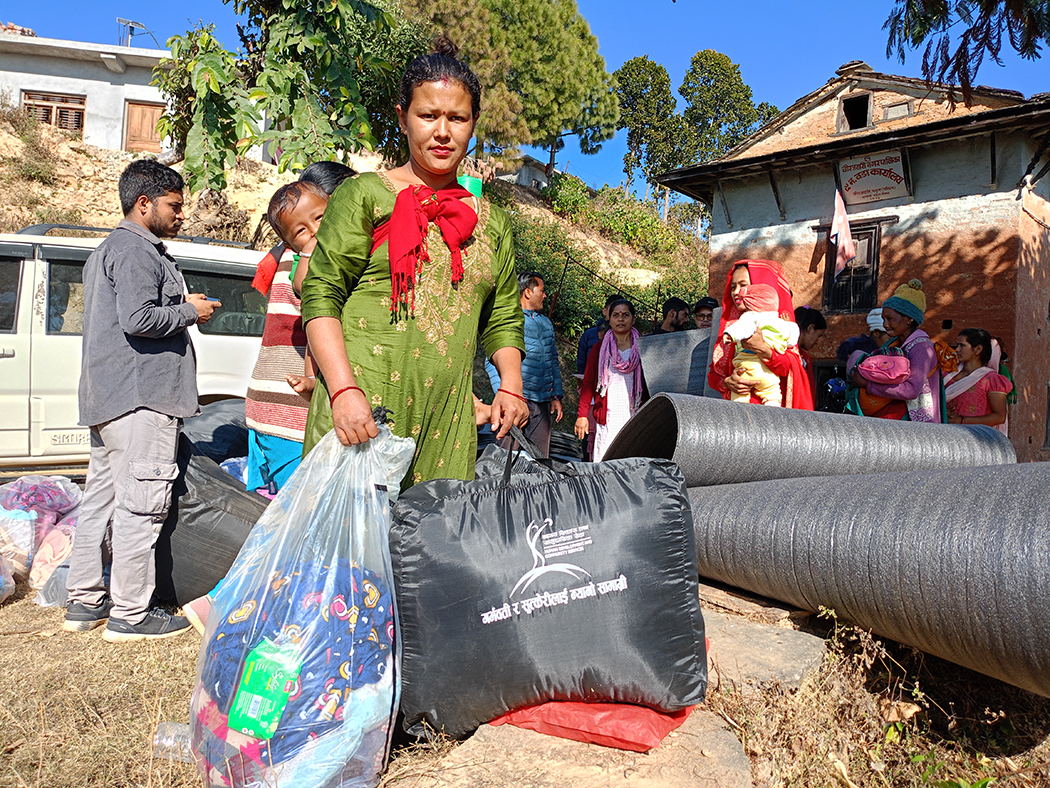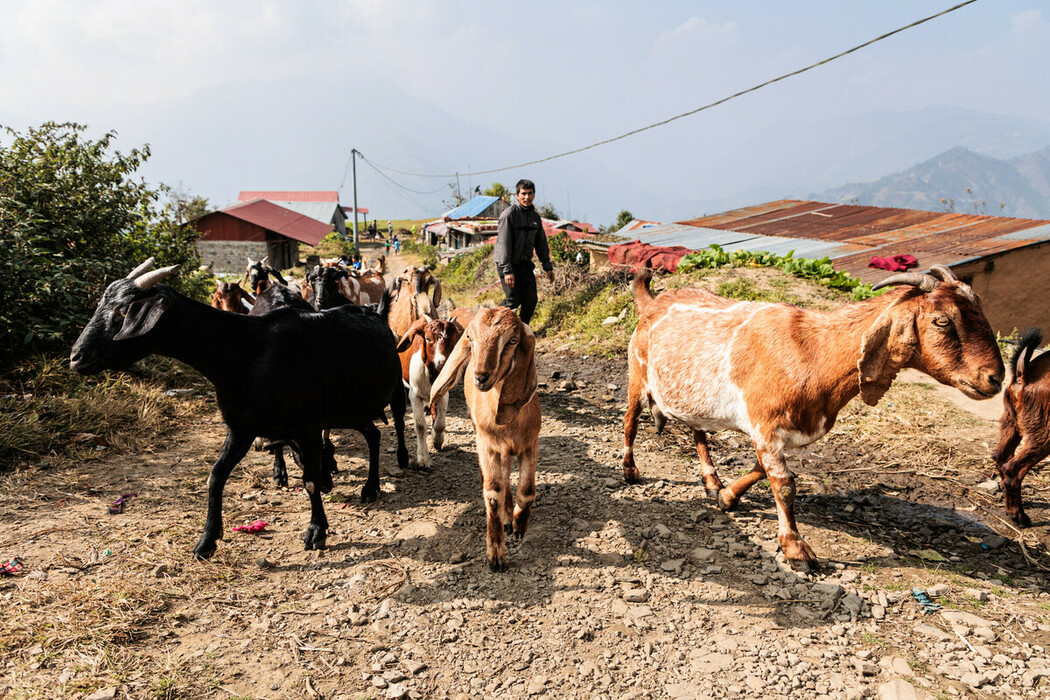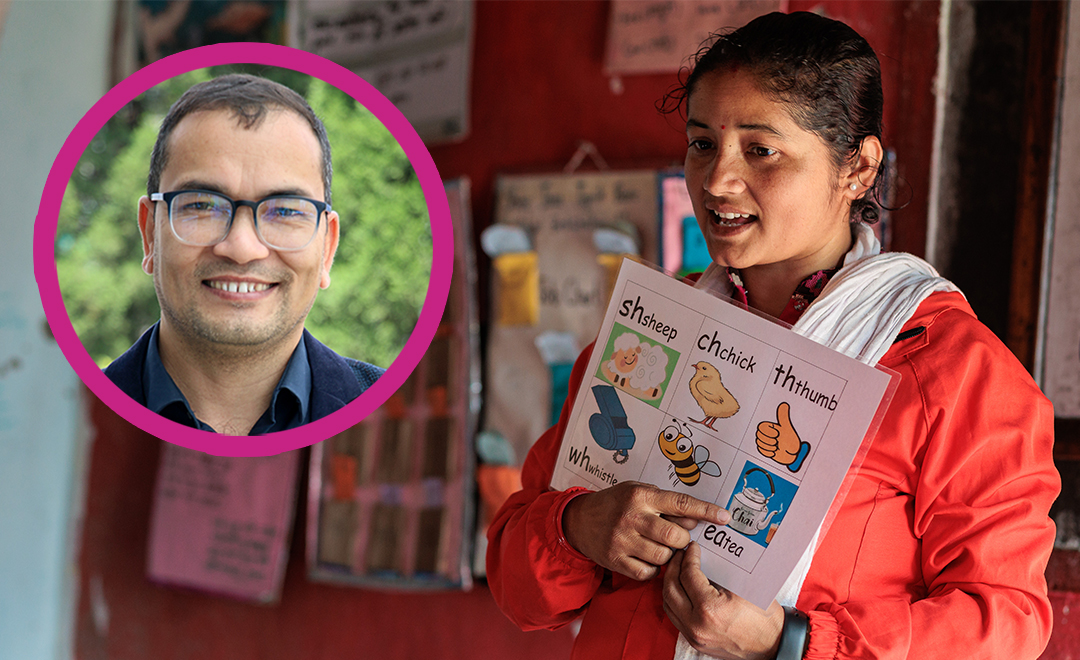Food for thought
The humble school lunch has received a lot of press recently – with famous footballers, TV chefs and politicians all joining the debate about what a nutritious school meal should look like. And in Nepal, the mission to feed hungry school children has been equally passionately fought.
BMS World Mission workers, Joy Ransom and Annie Tanner, work with the Kathmandu International Study Centre (KISC) to help train teachers in remote areas of the Lamjung District of Nepal. It was during a visit to a school in which a teacher spoke about the challenge of trying to teach hungry children that Joy had a revelation. “I realised that it doesn’t matter how good the teaching is,” explains Joy. “If children are hungry, they’re not going to access it.”
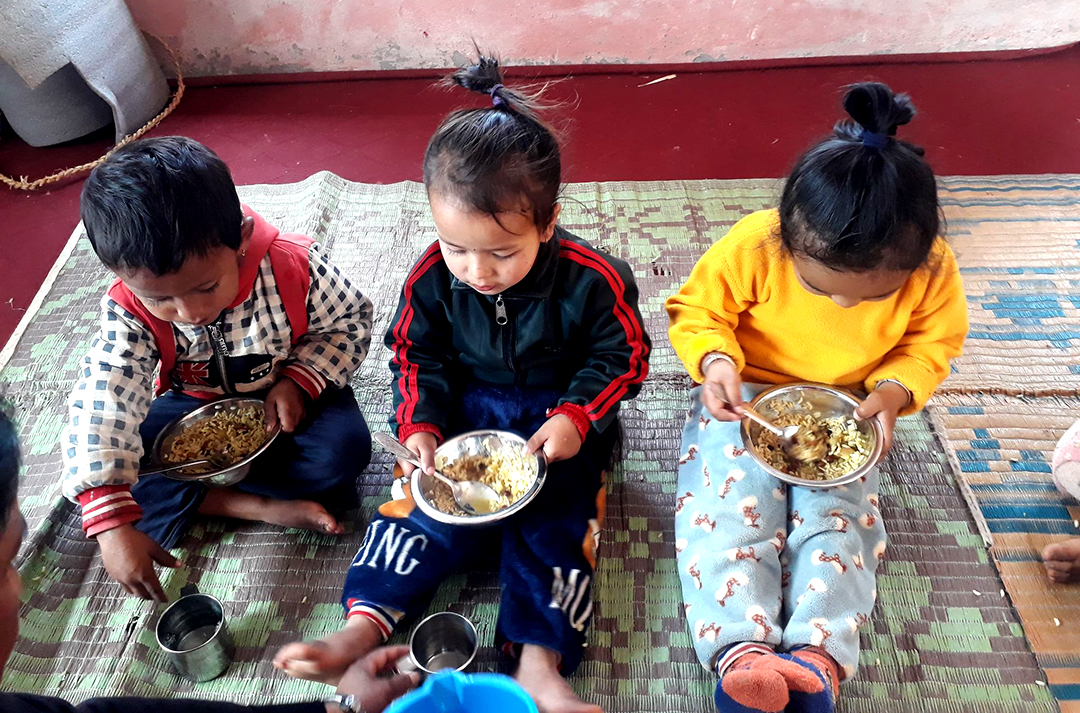
“Many of these kids won’t have eaten anything from 10 am until 4 pm,” continues Joy, “and they might have walked for an hour to get to school. So it’s no wonder that, by the afternoon, they can’t concentrate.”
Annie, Joy and their team at KISC knew they had to do something.
“One of the advantages of lockdown for us was that we had the time to think about things that we otherwise might have struggled to do,” says Joy. Within weeks a plan had come together: parents would create a rota to purchase and cook locally-sourced food, and each day, children would get a different nutritional snack such as rice-based porridge or cooked vegetables with lentils. The team would keep in regular contact with schools to support them and ensure that snacks maintained their nutritional quality. Best of all, taking turns to cook the food meant that parents had ownership of the project and were very much a part of their own children’s solution.
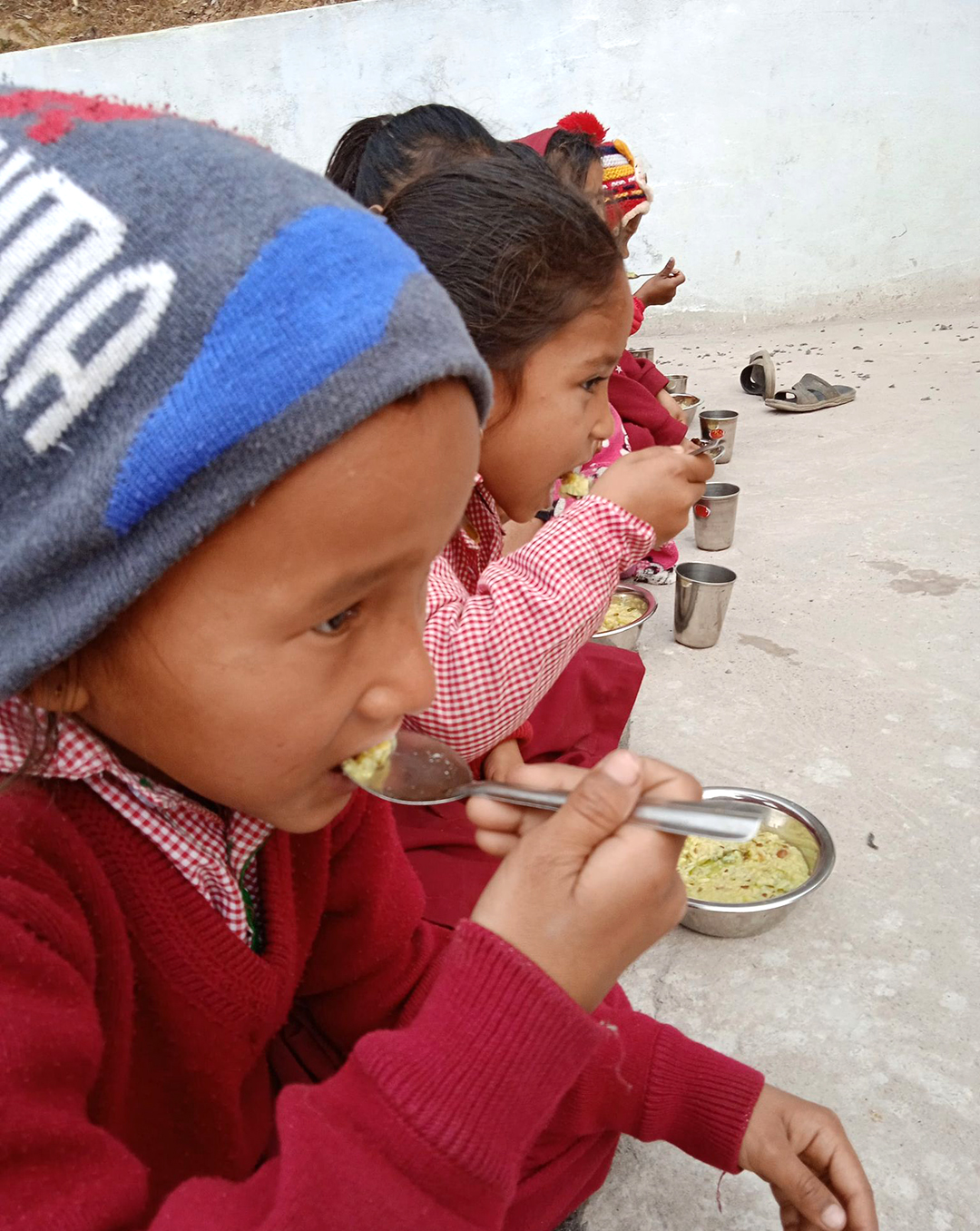
The way to a boy’s brain…
The link between food and learning cannot be over-estimated. One principal shared the story of Pradip*, a boy in her school who had little interest in learning and came to school sporadically. After some time, the teachers realised that his family often struggled to find food to eat – and when Pradip was hungry, he did not come to school. One of the teachers started bringing food from home to share with Pradip and he started coming to school more often. For the past two years, Pradip has been given a snack every day at school and is now attending regularly and doing well in his studies.
This was before lockdown. For the last ten months, as in the UK, schools in Nepal have mainly been closed. For many Nepali families lockdown has been devastating.
Much of Nepal’s population are casual workers, paid daily for the work they do. “If they can’t work, they can’t get money, and so they can’t eat,” explains Joy. This meant that, for many children, there was even less food around. The team at KISC were also worried that, once lockdown lifted, many children may not have come back to school.
“They’ve been out of the habit of studying for ten months and, for many families, it’s an expense to send their kids to school,” says Joy. “And so to have [a free snack] as a draw to pull kids back is a really big thing.”
Responding where you are
Annie and Joy have spent the last few months in the UK before returning to Nepal, but they’ve been keeping busy. Through the wonders of technology, Joy has been running training sessions for teachers in Nepal via Zoom, and Annie has been putting her experiences in Nepal to good use: helping run a similar feeding programme in Fife. “We were providing lunches for around eighty families during lockdown,” explains Annie. “I would be in the church hall, packing those lunches, and then I would look that evening and see that my colleagues had been to Lamjung that day to visit the feeding programme there!”
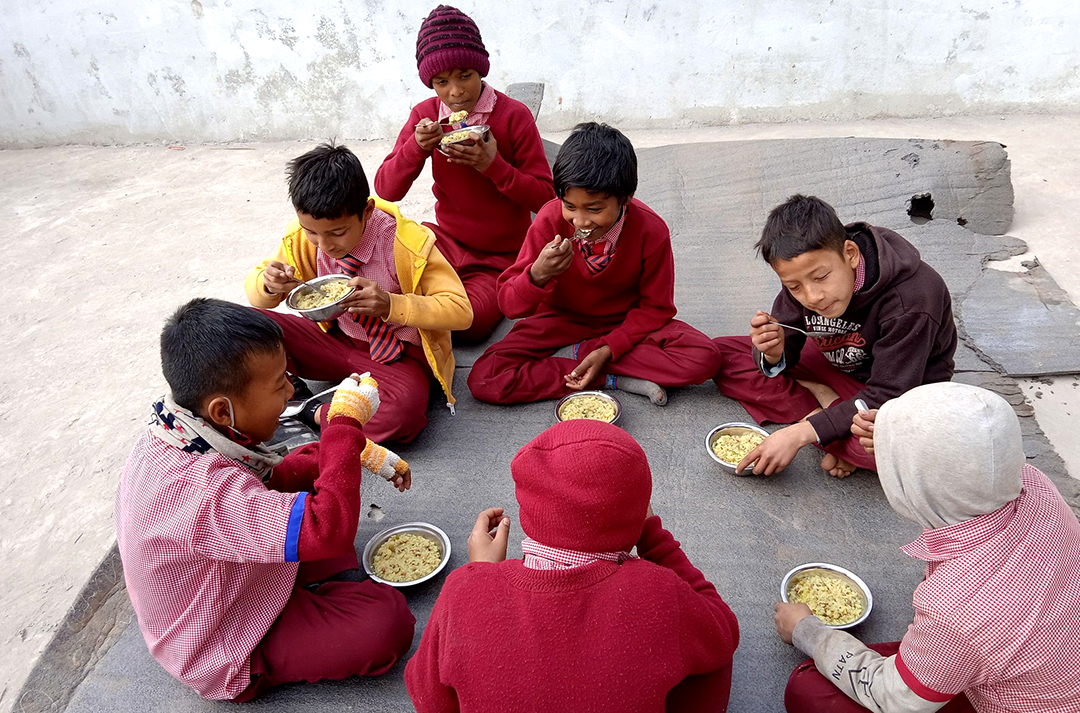
For Joy and Annie, the call is the same no matter where they are. “As mission workers… your heart is turned to where God needs you,” says Annie simply. “That could be anywhere. Our mission heart doesn’t change just because we’re stuck here in the UK.”
Even so, Annie and Joy can’t wait to get back to Lamjung and see for themselves the difference that feeding a child’s body, as well as their mind, can make.
You can support Joy, Annie and many others working to make a difference around the world. Become a 24:7 Partner today and help vulnerable people across the world when you give monthly to BMS.
And if you enjoyed this story, why not share it with your friends and family on Facebook and Twitter?

